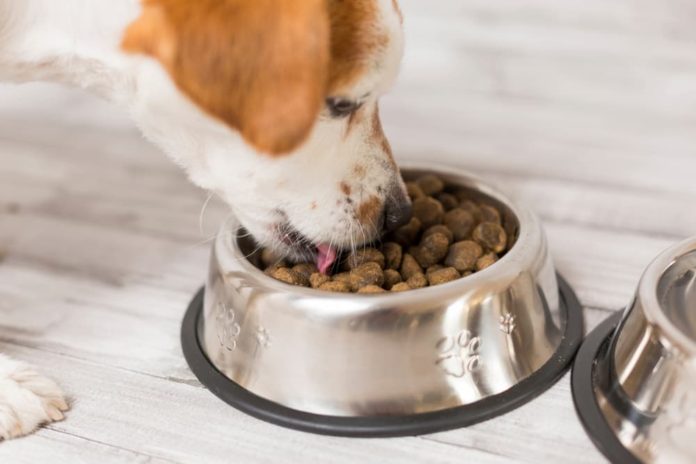Last Updated on January 30, 2024 by Fumipets
Unleashing Wellness: The Importance of Healthy Treats and a Well-Rounded Diet for Your Dog
As devoted pet owners, ensuring the well-being of our furry companions is at the forefront of our priorities. One of the fundamental aspects of their health lies in the choices we make regarding their diet. A balanced and nutritious diet, complemented by healthy treats, plays a pivotal role in enhancing your dog’s overall vitality, longevity, and joyous companionship.
In this exploration, we delve into the significance of selecting quality treats and providing a well-rounded diet to keep your canine friend thriving.
Healthy Treats and a Well-Rounded Diet for Your Dog
Gone are the days of letting dogs subsist mostly on table scraps. Now, we know just how much of a role diet plays in your dog’s health and how eating a balanced diet can help them live a better and longer life. Read on to learn more about the importance of a healthy diet for dogs and to discover our top tips for choosing healthy dog food and natural dog treats.

The Importance of a Healthy Diet for Dogs
You’ve probably heard the phrase “you are what you eat“ in relation to food for humans, but it also applies to food for dogs. If you feed your dog the cheapest food possible that is chock-full of filler ingredients, that is going to affect both their appearance and their internal health. On the other hand, feeding your dog a balanced diet can help keep them healthy for years to come. Here are for specific benefits of a healthy diet for dogs:
- Skin and coat appearance: The most obvious benefit of a healthy diet is your dog’s fur. If your dog doesn’t get enough fatty acids in their diet, their coat will often become dull and the hair will easily split or break. They can even develop skin issues beneath their coat if things get bad enough. And meanwhile, eating a healthy diet will help support a glossy coat and healthy skin.
- Digestion and bowel movements: Just like humans, dogs can have issues with diarrhea or constipation if they don’t eat a balanced diet. Healthy dog food should have enough carbohydrates and fiber to promote digestion and encourage bowel movements. However, it shouldn’t be so full of fiber that it passes right through your dog’s system and they poop it all out.
- Muscles and bones: Dogs need a lot of protein to keep their muscles and other organs healthy and strong. If they don’t get enough protein, their muscles won’t be able to rebuild themselves and they may be more prone to injury as a result. Getting enough protein is especially important for young puppies because their bodies are still developing and their muscles are growing at such a fast rate, but all dogs still need a lot of protein in their diet.
- Immune system: Similar to humans, dogs also need certain vitamins and minerals in order to stay healthy and keep functioning at peak performance. If they don’t get those vitamins, then their body can’t repair itself as efficiently and that can have negative impacts on their immune system and make them more vulnerable to illness and allergies. You can even get supplements for your pet in the form of collagen chews or other nutritious treats in order to directly boost your dog’s immune system.

What a Healthy Diet for Dogs Looks Like
Generally speaking, you will want to choose a dog food that is high in whole proteins, grain and produce-based carbohydrates, and healthy fats. It should also be fortified with essential vitamins and minerals that your dog needs. Your dog’s specific dietary needs will vary according to their breed, age, weight, activity level, and many other factors. Your vet will be able to make a personalized recommendation for what type of food to feed your dog, how much food to feed them, and how often.
When choosing both dog food and dog treats, check the label to see how many ingredients are listed and how many of them are useless fillers, artificial colors and dyes, and other additives or chemicals that don’t contribute to a healthy diet. A few of these won’t hurt your dog, but you should try to minimize their consumption of them as much as possible in order to support a healthy diet.
Many brands use labels such as organic and natural, and while these words sound great, sometimes they are used more as a marketing term than to signify anything about the quality of the food. Some natural dog treats are healthier and more delicious than their counterparts, but others are not. You need to read the label and the ingredients to make sure that you are actually getting the high-quality, healthy products that you have been marketed.

When it comes to giving your dog treats, those should make up no more than 10 percent of their overall calorie intake for the day. We recommend keeping two types of treats on hand: small, easy-to-chew treats that can be used for training and more long-lasting treats such as dental treats for dogs that will offer health benefits and mentally stimulate your dog. These long-lasting treats aren’t as efficient for training, but they offer a lot more bang for their buck in terms of calories and can keep your dog entertained for a long time.
When feeding your dog — both treats and regular dog food — always keep an eye on their portions. No matter how healthy the food is, feeding your dog too much will make them gain weight if they aren’t burning off those extra calories. Your vet can help you figure out how many calories your dog should be eating each day to either maintain or lose weight so they stay within a healthy range.
High-quality, healthy dog food may cost a bit more, but you will often see the benefits of having a healthier dog with a stronger immune system. Your vet is a great resource for you in making the transition to feeding your dog a healthier diet and healthy treats, so don’t hesitate to give them a call or to ask about this at your next appointment. Keep these other tips in mind as you talk with your vet and shop for healthy dog food and dog treats.
Q&A: Nourishing Insights for Canine Well-Being
Why is a balanced diet crucial for dogs?
A balanced diet is the cornerstone of a dog’s health. It provides essential nutrients that support overall well-being, from bolstering the immune system to promoting optimal energy levels. Maintaining the right balance ensures your dog’s body functions at its best, safeguarding against potential health issues.
How do healthy treats contribute to a dog’s diet?
Healthy treats serve as more than just rewards; they can be valuable supplements to a dog’s diet. By choosing treats rich in nutrients, you offer additional benefits, addressing specific health needs such as joint health, dental care, or skin and coat improvement.
What are the potential risks of an imbalanced or poor-quality diet?
An imbalanced or poor-quality diet can lead to various health issues, including nutritional deficiencies, obesity, and a weakened immune system. It may impact your dog’s overall vitality, affect their coat condition, and even contribute to behavioral problems. Choosing the right diet is an investment in their long-term health.
How can dog owners identify high-quality treats and food options?
Reading ingredient labels is crucial. Look for treats and food with real meat as the primary ingredient, avoiding excessive fillers and artificial additives. Additionally, consulting your veterinarian for recommendations based on your dog’s breed, age, and health condition can guide you towards optimal choices.
Can a dog’s diet impact their mental well-being?
Absolutely. A well-balanced diet doesn’t just benefit the physical health of a dog; it extends to their mental and emotional well-being. Nutrient-rich foods contribute to better cognitive function, improved mood, and can even play a role in managing stress and anxiety levels.


















